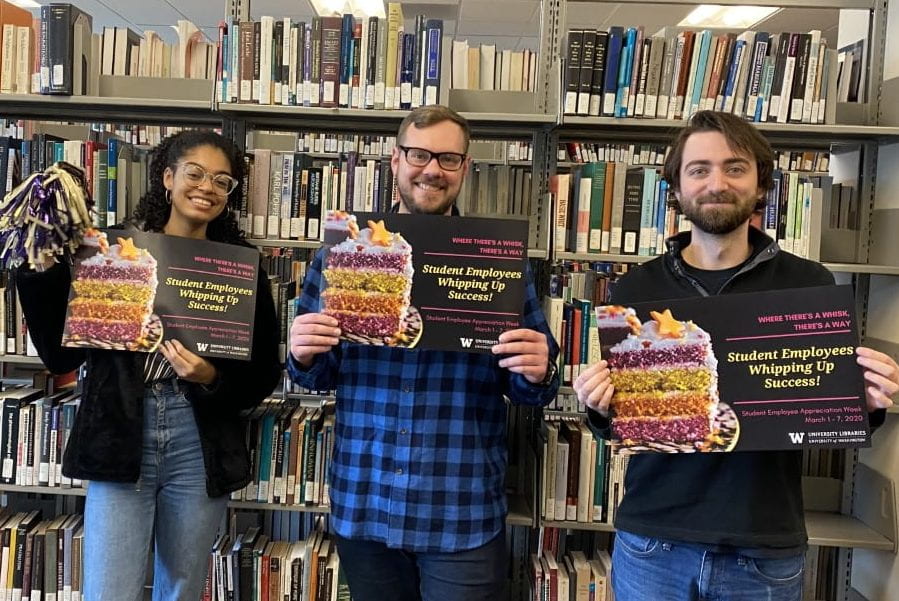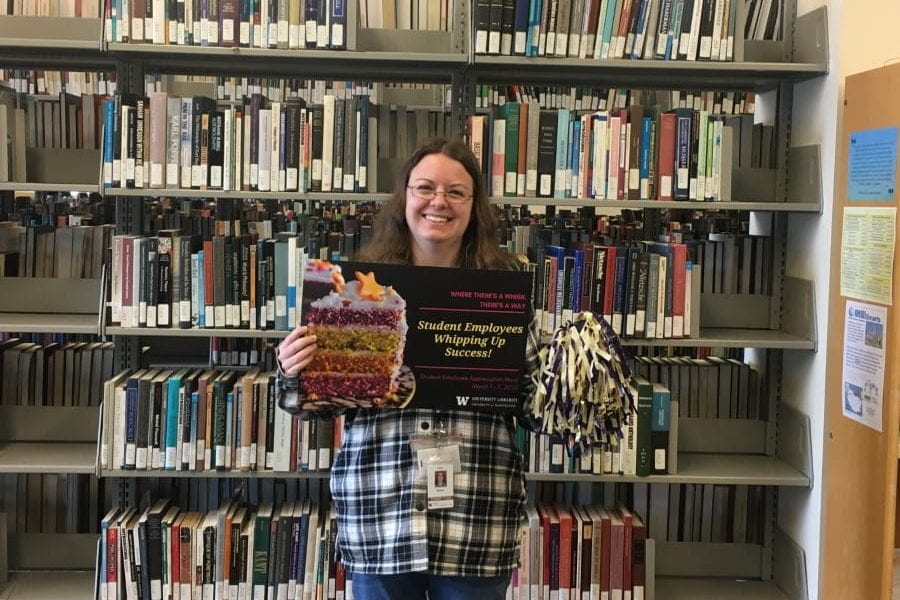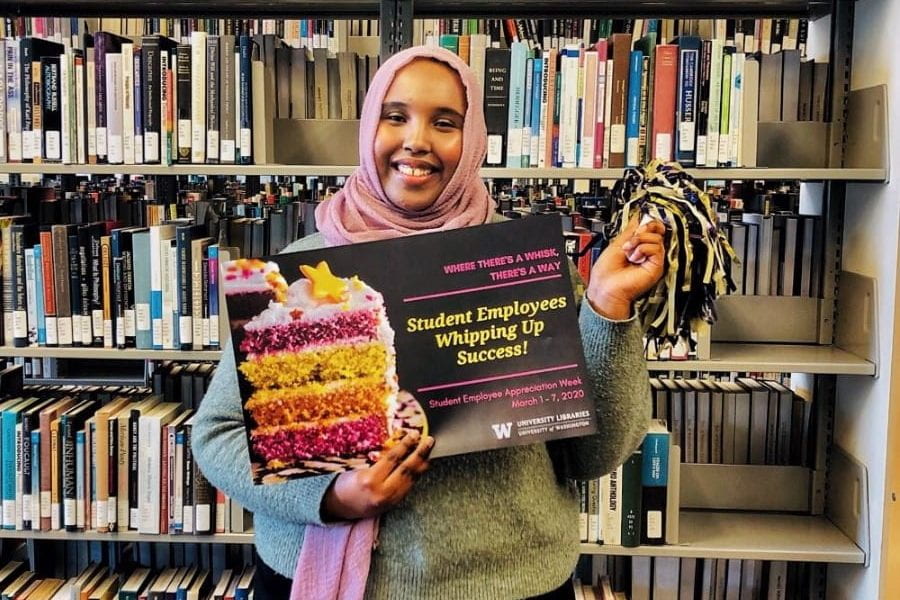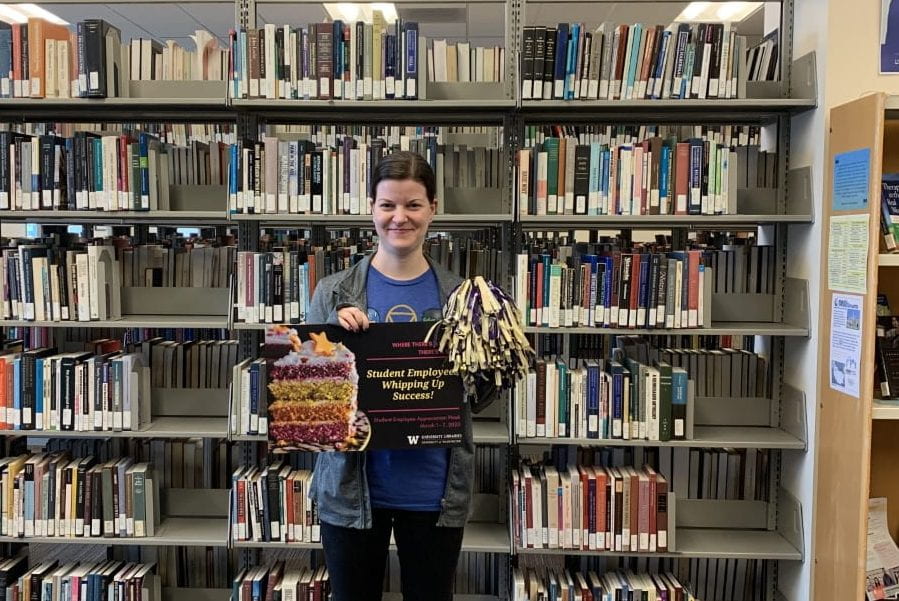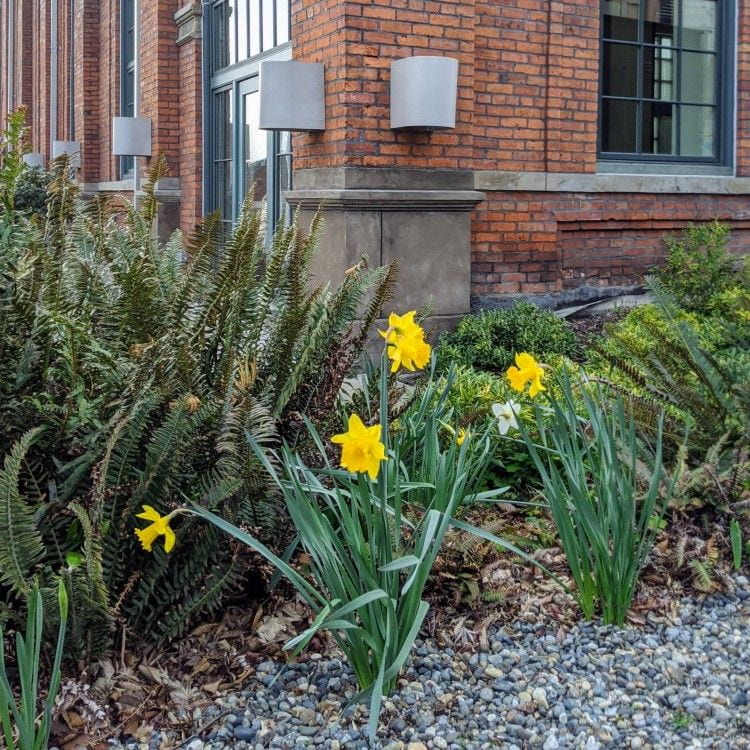
This week the Library is recognizing and celebrating both Open Education Week and UW Libraries Student Employee Appreciation Week.
I’m not sure if these two honorary weeks have occurred in the same week in years past, but for me, the coincidence seems apt. Thanks to these “two weeks in one,” I have an excuse to show the reach and complexity of Library work. Our activities extend from leading Open Education efforts campus to providing meaningful employment for the students on our campus.
Most importantly, I get to celebrate and recognize the library staff who do the work that is essential to the functioning of the Library, now and in the future.
Supporting Creation and Adoption of Open Educational Resources (OERs) at UW Tacoma
Marisa Petrich, Instructional Design Librarian at UW Tacoma, is leading Library’s efforts to increase the adoption and use of Open Educational Resources (OERs), which include textbooks that are free to students and that can be easily shared and customized by instructors. These resources can help reduce the cost of education for students and improve student retention. OERs reflect one component of Open Education, which broadly “encompasses resources, tools and practices that employ a framework of open sharing to improve educational access and effectiveness worldwide” (See “What is Open Education”).
In 2019, Marisa was selected to participate in the 2019-2020 cohort of the SPARC Open Education Leadership Fellows, a program that empowers librarians to organize open education initiatives that benefit students. For her SPARC capstone, she has received funds from the Libraries Allen Endowment to take a small cohort of faculty through design sprints that will convert a core course in a program to OER. Spread out over several days, this workshop will rapidly develop resources that all instructors who teach this course can use.
This work builds on successful past work in which Marisa and Serin Anderson, Interim Associate Director, collaborated on successful UW Tacoma Strategic Impact Fund to create a training program for faculty that provided them with time, training, and intellectual tools for evaluating and potentially adopting OERs in their classes. In summer of 2019, 17 faculty members attended this training and shared the impact it had on their work in a panel last October. Thanks to another successful SIF proposal, another round of training will be offered this summer.
In addition to all this work, Marisa has also recently guided the ASUWT student government through a participatory design process so that they could advocate for the adoption of OER and other affordable course materials. Personally, I am excited to see where this multi-faceted approach to advocacy for Open Education will lead as awareness raised across campus.
UW Libraries Student Employee Appreciation Week
(Thanks to Marcia Monroe, Access Services Supervisor for these photos.)
This week we recognize the outstanding student employees who are essential to the services and functions of the Library. The slider above shows a few of the undergraduate and graduate students employed in 19 positions across Access Services, Research Help, and Information Technology. In many ways, students are the faces of the library and are likely to be the working behind the desks in our buildings. Here are some of the things that our wonderful students do:
- Greet and provide friendly, competent service to the many visitors who pass through the Library doors.
- Perform duties that keep the building open and running from 7am to midnight during most weekdays.
- Maintain our collections by pulling and reshelving items.
- Process hundreds of items that are sent between the campuses served by the UW Libraries
- Answer all kinds of questions, from the mundane to detailed reference questions.
- Collaborate with librarians to teach research skills to classes.
- Troubleshoot technology problems and keep staff computers running.
- Maintain author profiles and create lists of faculty publications.
- Prepare digital oral history projects for online collections
In short, our student employees keep the Library running, and we couldn’t do it without them! As a token of our appreciation, Library staff this week are providing snacks and other goodies.
Student-created Display on Mental Health in the Library
During Winter Quarter, the Library hosted a display by the UW Tacoma chapter of the National Alliance on Mental Health (NAMI) titled Let’s Talk about It: Mental Health and UWT. Its goal is: “to provide informational resources for those living with mental illness and for those who are interested in learning more about mental health.” Featured in the display are pamphlets and brochures provide information on a variety of campus services and books from the UW Libraries about mental health, therapy, and recovery. To connect with the campus community, NAMI has tabled alongside the exhibit and offered food and snacks to students. The display will stay up until later this month, and I would like to thank NAMI members, especially Regina Harper, and the library staff who collaborated with them to make this exhibit possible.
Completing and Discussing Librarian’s Guide to Homelessness
In August 2018, the Library staff in Access Services won a UW Tacoma Team of the Year Award for the textbook pilot. The staff who won the award decided to use professional development funds to get one year’s access to Librarian’s Guide to Homelessness, an online course for Libraries developed Ryan Dowd, the Executive Director of a homeless shelter outside of Chicago, Illinois. The training uses an “empathy-driven approach” to working with individuals who are experiencing chronic homelessness.
The group selected this training to develop our capacity to respond to some of the challenging situations that arise in the Library. We strive to cultivate an open, inclusive, and welcoming spaces, and like most libraries in an urban setting, the most vulnerable members of our society seek refuge here. Most of the time, these folks go unnoticed and use our facilities like all of our visitors, and yet other times, they may exhibit disruptive behaviors that require some kind of intervention.
All of the Library staff are attending the training to improve our understanding and skills. Over the coming month, we will be discussing how to incorporate its lessons into our work. I expect this process may lead to changes to some of the policies and procedures for responding to incidents that occur in our spaces. We do this work ultimately to ensure that our spaces are safe as we fulfill our primary mission “to help our students, faculty and staff achieve their goal.”
Managing TLB 307b Atrium Space
This quarter, the management of the third floor atrium space on the Tioga Library Building (TLB 307b) transitioned from the Office of Research to the Library. We continue to prioritize faculty development events for this space, and we also make it available for events organized by the partner units who will eventually be part of the Learning Commons, such as the Teaching and Learning Center, the Center for Equity and Inclusion, and Digital Learning.
All scheduling requests for this room should go through 25Live. Please keep an eye out for the coming call to schedule faculty development events for Spring Quarter. Hannah Wilson, Access Services Manager, led and coordinated this effort, and she is the best person to contact if you have questions.
Launching a Maker Space Club
Anyone who has walked through the first floor of the Snoqualmie Building has probably noticed the Library’s 3D printer and the many printed objects on display. Tim Bostelle, Head, Information Technology, leads this effort. During Spring Quarter, he is partnering with librarian Johanna Jacobsen Kiciman to a Maker Space Club aimed at non-STEM folks that will offer students pathways to explore many aspects of maker technology: coding through Raspberry Pi, 3D printing, Arduino, and knitting, among other things. The goal is to create a diverse and welcoming community for those who wish explore and experiment with this technology. Through this group, they hope to offer (as they wrote in their proposal) “hands-on, community building, peer-to-peer learning experiences.” Later this month, Tim and Johanna will begin tabling in the entrance of the Snoqualmie Building and reaching out to faculty and students.
